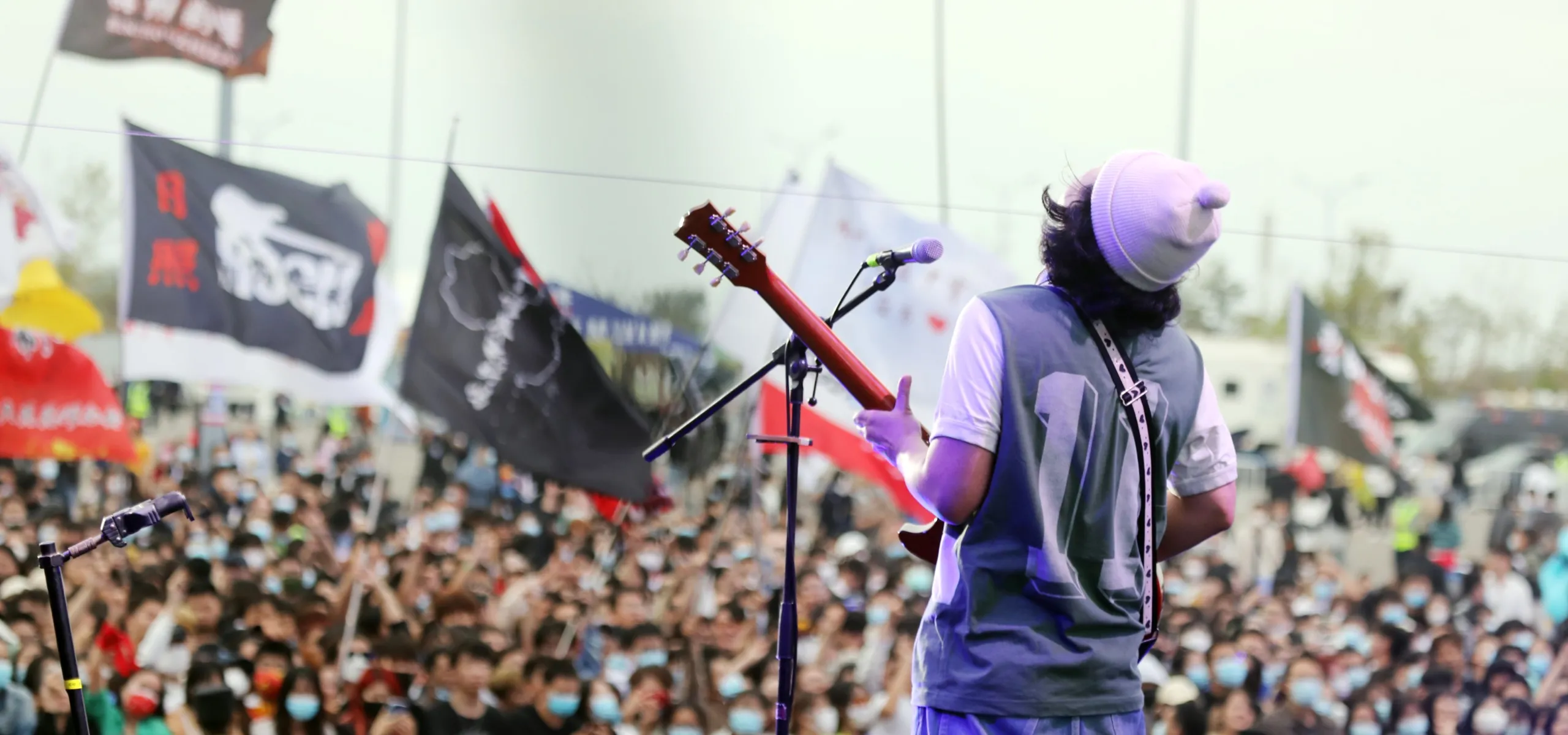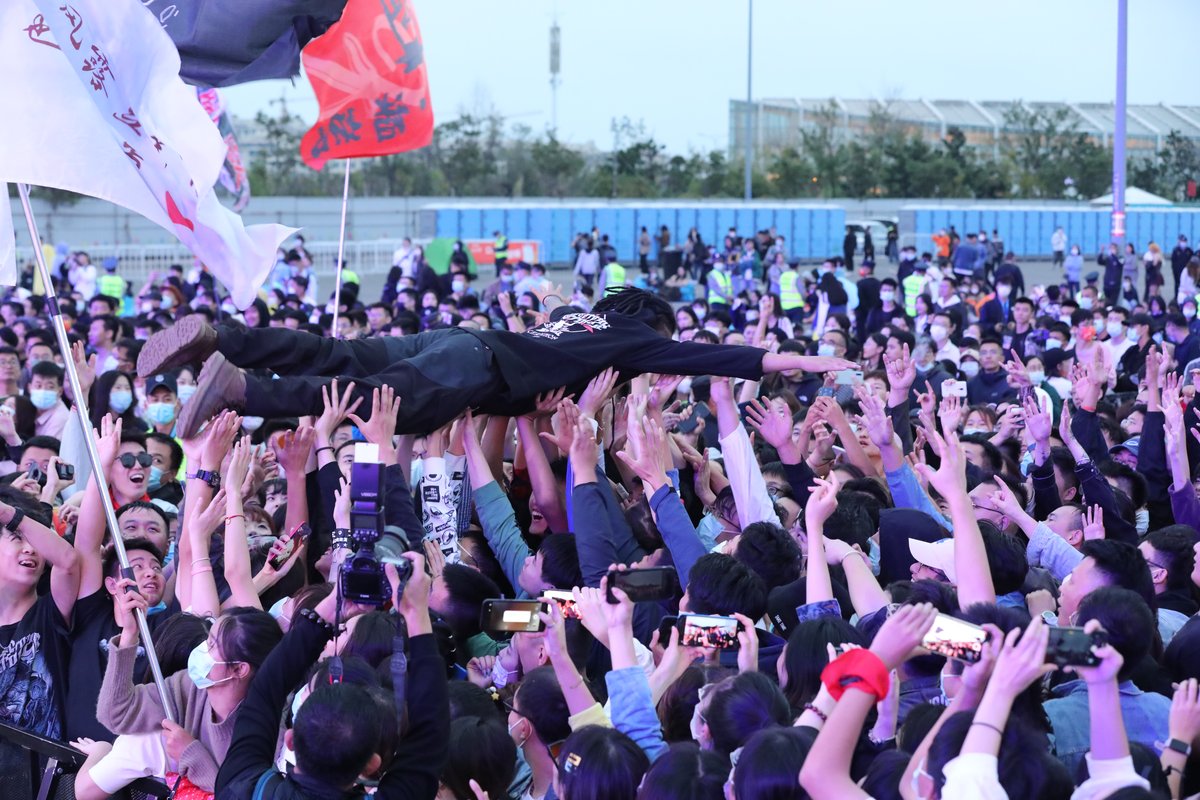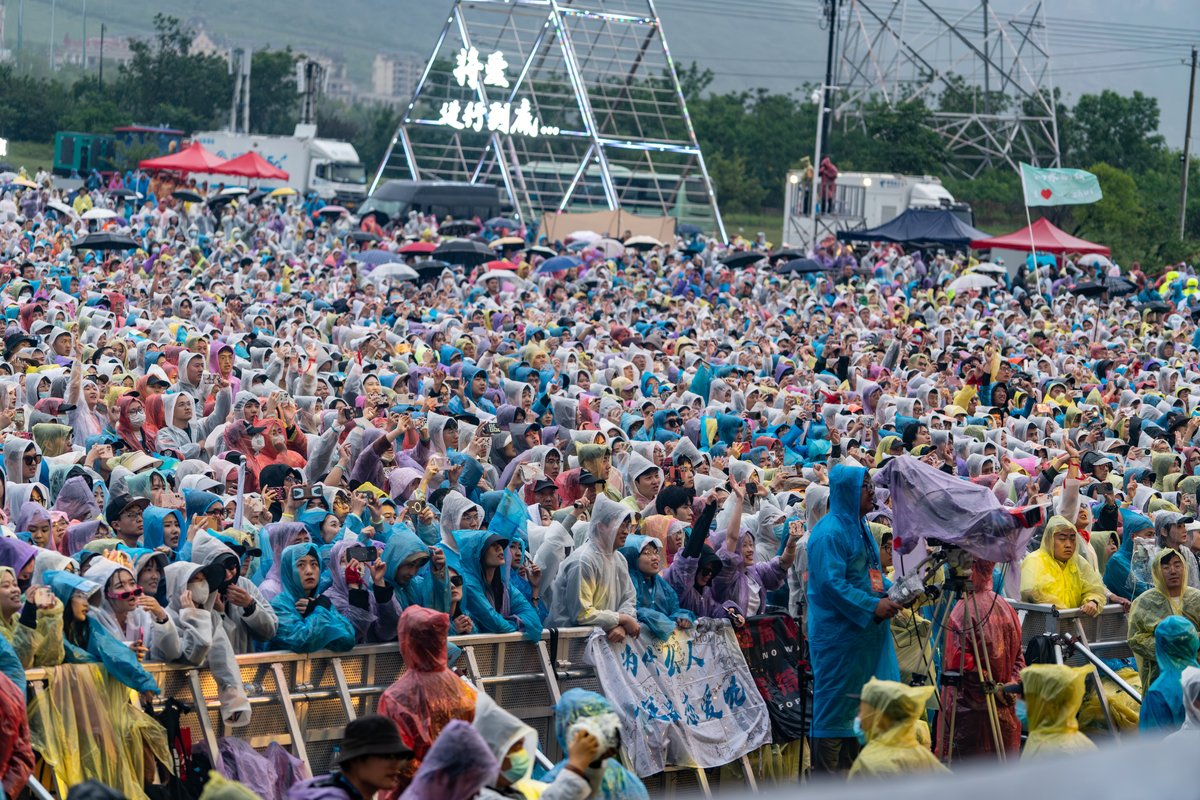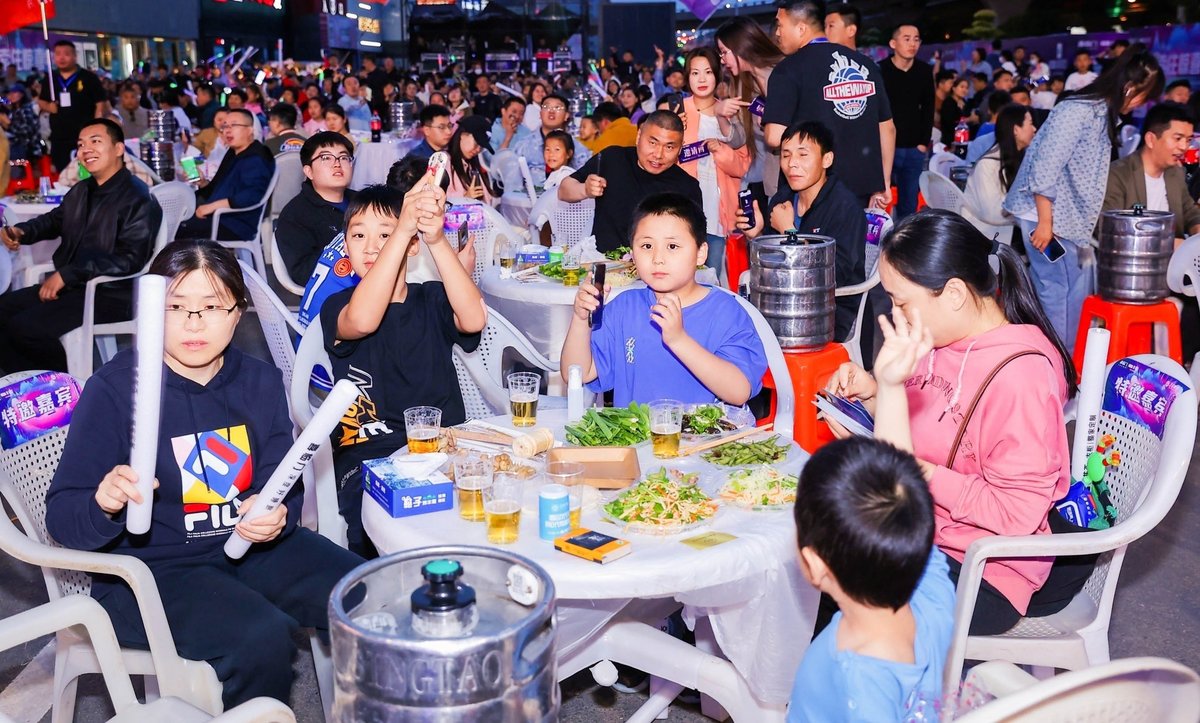Music festivals in China are back after the pandemic hiatus. But inflated prices, poor site management, and a lack of diverse lineups leaves attendees disappointed
After years of pandemic-related cancelations, China’s music festivals are finally back—and demand is soaring. “In just a few seconds, all the tickets were gone,” says Liu Shanshan, describing the scramble online for tickets to Midou Music Festival held in Nanjing, Jiangsu province, during this year’s Labor Day holiday in May.
The price, at 450 yuan a day, is higher than usual. But for those like Liu, who have been unable to attend festivals for three years, it was worth forking out for. The 26-year-old journalist, who wishes to go by a pseudonym, had been attending at least one music festival a year since 2015, until the outbreak of Covid-19 put a stop to most events, including live music performances. This year, with virus prevention measures ended, she has made up for lost time by attending Midou and a dozen other live music performances.
“I felt like I was depressed during the pandemic days,” she tells TWOC, explaining how watching videos of previous live music performances on her phone was a poor substitute for the real thing. “It had been a long time since I enjoyed any live performances, so I want to recapture that feeling [of being there in person] now.”
Festivals making up for lost time
After being hit hard by the pandemic, the music festival industry has bounced back since early 2023. According to state-media outlet China News, 290 days of performances at 106 music festivals took place in February and March alone, with over nine times the number of tickets sold compared to the same period in 2019. Big, well-known festivals have returned, including Strawberry Music Festival, which drew 50,000 attendees over two days in Changsha, Hunan province; and the Midi Music Festival, which attracted over 100,000 visitors in three days in Yantai, Shandong province.
Now, smaller towns and counties are also jumping on the music festival bandwagon in the hope of boosting the local economy post-pandemic. During the five-day Labor Day holiday, more than 40 music festivals were scheduled in 19 provinces, compared with approximately 10 the same period in 2019, according to Xiaolujiao, an online database of live music in China.
But the explosion of events post-pandemic has also led to a torrent of complaints about surging prices, poor on-site management (particularly at festivals in smaller towns), and cliché lineups.
High ticket prices have hindered festival goers like Yang Yang. The 25-year-old postgraduate student from Lanzhou, Gansu province, claims that a student ticket to Strawberry Music Festival in Xi’an, was just 180 yuan a day back in 2017, but cost 320 yuan this year. “I planned to go this year, but the price was too high, and the [lineup] wasn’t good,” she tells TWOC. “I even asked scalpers, but their prices were double; over 500 yuan each.”
Ma Wu, an organizer for West Lake Music Festival held in May in Hangzhou, the capital of eastern China’s Zhejiang province, blames the inflated ticket prices on rising costs for renting venues, booking bands, and reserving local hotels to host the performers and their staff. “In the past few years, [due to the pandemic] lots of industries didn’t make any money, but now the price of everything has increased,” says Ma. “Acts we invited that used to cost us in the tens of thousands now cost about 200,000 yuan.”
“I’m getting criticized [for the inflated prices) every day,” one unnamed music festival organizer told the Shanghai Observer in April this year. “Even in my personal WeChat group chats, my old high school friends accuse me of ‘robbery’…but we also need to make a living.” According to the Shanghai Observer, the Beijing-based record company Modern Sky, who organize the popular Strawberry Music Festival that takes place in various cities around the country, canceled about 30 music festivals and lost 150 million yuan in 2020 alone due to the pandemic. Many organizers are now hoping to make up similar shortfalls.
Festivals are also opening up new frontiers as they expand into smaller towns and cities, often encouraged by local governments hoping to attract tourists and boost the economy. This April, for example, Ma worked with the local government in Zhuji, a county-level city in Zhejiang best known for pearl farming, to hold the Xishi Music Festival. It attracted more than 30,000 attendees, 70 percent of whom were from out of town. “The festival promotes the whole city, bringing economic benefits but even more social benefits. You can’t accomplish that just through advertising” Ma argues.
Likewise, April’s The Youth Music Festival in Sishui county, Shandong province, brought in more than 50 million yuan to the local economy, according to China Youth Network. Over 80 percent of hotels and guesthouses in the county were fully booked during the two days of the festival. “Nearly all my friends aged between 20 and 35 attended it,” says Zhang Lei, a 32-year-old engineer from Sishui. “We haven’t traveled out [of our county] for a long time due to the virus, and fewer events have been held in the past few years. It was very convenient for us locals—I didn’t need to take high-speed railway or spend money on accommodation and food.”
Can small town music festivals compete?
Ma believes festivals offer more potential gains to smaller, lesser-known areas. “What does West Lake Festival bring to Hangzhou? Perhaps it just helps a little since Hangzhou is already a city of tourism,” he says. But in smaller cities, “it’s more like an advertisement to get more young people to know the place and continue to pay attention to what’s going on there.”
However, unlike larger cities which have more established festival locations, professionals to manage events, and experience hosting them, small counties face big challenges. In Sishui, for example, many complained about the organizers after heavy rain disrupted the festival, while comments online moaned about “low quality” behavior from locals and the inconvenient location.
At Longgong Music Festival in Jiangsu province this April, security guards were filmed threatening and then fighting with attendees who brought in flags of their idols to wave during performances, while volunteers at March’s Gui Music Festival in Guiyang, Guizhou province, allegedly rented out their uniforms to help people enter the festival without tickets.
Zhang, the Sishui local, still argues “it was a good advertisement for us…More people knew there is a place called Sishui county.” But “after the two days of the festival no one sticks around…so it doesn’t affect the local economy that much.”
Whether in small counties or big cities, Ma believes the boom will continue at least until next year. “Just like marathons, every city will have its own music festival,” he predicts. But he eventually expects the craze to die down, arguing 30 festivals in one weekend across the country is unsustainable.
He also complains that the explosive growth in music festivals this year has failed to bring greater musical diversity to the scene, with most festivals featuring the same “internet famous” stars rather than talented musicians, experienced acts, or fresh sounds.
Yang, the student, believes the current boom is being driven by hype alone. “Although there are more festivals and more people attending after the pandemic, I think most people are just ‘revenge spending’ on music festivals; they don’t really like to go.”
Liu, the journalist, still plans to attend as many festivals as possible this year, including the Guazhou Music Festival in Yangzhou, Jiangsu, scheduled for September. She was lucky to get a spot—the 20,000 tickets sold out in just eight seconds.















